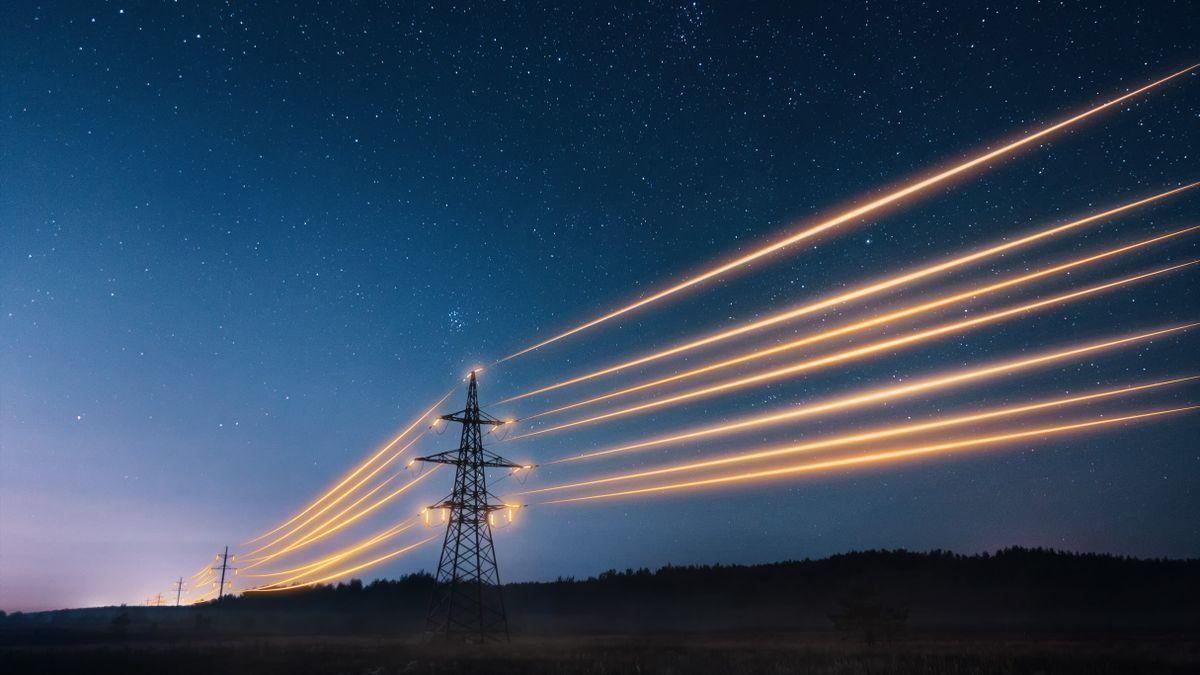Trump's Renewable Energy Crackdown Threatens US AI Dominance, Data Center Industry Warns
2 Sources
2 Sources
[1]
Trump's attacks on green energy are big trouble for data centers, AI
The US data center industry has warned that the Trump administration's crackdown on renewable energy could slow its growth and undermine Washington's goal to win the global artificial intelligence race. Renewables have become a flashpoint since Donald Trump re-entered the White House, with his administration suspending clean energy developments on federal land, pausing federal loans, and last month canceling high-profile projects such as Equinor's $5 billion Empire Wind site. For tech companies struggling to secure reliable energy supplies to power and train AI, a clampdown on renewables could create power bottlenecks, drive up costs, and push operators towards dirtier energy, experts said. Simon Ninan, senior vice-president at Hitachi Vantara, which builds equipment and infrastructure for data centers, said the Trump administration's "antagonistic approach" towards renewable energy could make it "impossible to satisfy the data growth that's happening." "Strategically, the US could risk undermining its current pole position in the global AI race... China, on the other hand, has taken a proactive approach towards grid modernization and efficient power distribution." Energy shortages could "result in cancellation or delays in data center build-outs or infrastructure upgrades," he said. The Trump administration has warned that losing the AI race to China is a bigger threat to the world than global warming and has advocated increasing the use of fossil fuels to power them. But experts warn it will be difficult to meet surging demand without adding a lot more renewable energy capacity, which is faster and cheaper to deploy than building gas power plants.
[2]
Donald Trump's attack on green energy could hurt US in AI race, data centres warn
The US data centre industry has warned the Trump administration's crackdown on renewable energy could slow its growth and undermine Washington's goal to win the global artificial intelligence race. Renewables have become a flashpoint since Donald Trump re-entered the White House, with his administration suspending clean energy developments on federal land, pausing federal loans and last month cancelling high-profile projects such as Equinor's $5bn Empire Wind site. For tech companies struggling to secure reliable energy supplies to power and train AI, a clampdown on renewables could create power bottlenecks, drive up costs and push operators towards dirtier energy, experts said. Simon Ninan, senior vice-president at Hitachi Vantara, which builds equipment and infrastructure for data centres, said the Trump administration's "antagonistic approach" towards renewable energy could make it "impossible to satisfy the data growth that's happening". "Strategically, the US could risk undermining its current pole position in the global AI race . . . China, on the other hand, has taken a proactive approach towards grid modernisation and efficient power distribution." Energy shortages could "result in cancellation or delays in data centre buildouts or infrastructure upgrades", he said. The Trump administration has warned that losing the AI race to China is a bigger threat to the world than global warming and has advocated increasing the use of fossil fuels to power them. But experts warn it will be difficult to meet surging demand without adding a lot more renewable energy capacity, which is faster and cheaper to deploy than building gas power plants. The assault on renewables has alarmed Democratic leaders in north-eastern states, which are relying on the expansion of wind energy to meet future electricity demand. On Monday a coalition of Democratic attorneys-general from 17 states sued the Trump administration in an effort to block its attempt to end the development of wind energy. Data centres are expected to add 83.7 gigawatt of energy demand by 2030, equivalent to adding a new state the size of Texas to the grid, according to the Center for Strategic and International Studies think-tank. While many companies are investing in nuclear small modular reactor technologies, it may be years before they are operational. "We've seen increased competition for green energy over the last couple of years," said Nick Hertlein, a managing director at Stonepeak, an alternative investment firm specialising in infrastructure and real assets. "If US AI development is a priority, [policymakers] need to find ways to accommodate the data centre industry's growth." While large-scale gas generation projects are being fast-tracked by major grid operators such as PJM, MISO and ERCOT, this may come at the expense of cheaper sources like renewables. Gas turbine suppliers such as Siemens and GE Vernova have warned lead times can stretch to 2029 for larger models. "If we can't bring on new, lower-cost resources when demand is increasing, we'll have to rely more and more on higher-cost resources," said Rich Powell, chief executive of the Clean Energy Buyers Association. "We just need to flood the zone with new electricity as quickly as we can." Although big players in the technology industry may be able to lobby the administration to "loosen up" restrictions on new power sources, small to medium-sized players are in a "holding pattern" as they wait to see if permitting obstacles and tariffs on renewables equipment are lifted, said Ninan. "On average, [operators] are most likely going to try to find ways of absorbing additional costs and going to dirtier sources," he said. Amazon, which is the largest corporate purchaser of renewable energy globally, said carbon-free energy must remain an important part of the energy mix to meet surging demand for power, keep costs down and to hit climate goals. "Renewable energy can often be less expensive than alternatives because there's no fuel to purchase. Some of the purchasing agreements we have signed historically were 'no brainers' because they reduced our power costs," said Kevin Miller, vice-president of Global Data Centers at Amazon Web Services. Efforts by state and local governments to stymie renewables could also hit the sector. In Texas -- the third-largest US data centre market after Virginia, according to S&P Global Market Intelligence -- a raft of bills are being debated that increase regulation on solar and wind projects. "We have a huge opportunity in front of us with these data centres," said Doug Lewin, president of Stoic Energy. "Virginia can only take so many, and you can build faster here, but any of these bills passing would kill that in the crib." The renewables crackdown will make it harder for "hyperscale" data centres run by companies such as Equinix, Microsoft, Google and Meta to offset their emissions and invest in renewable energy sources. "Demand [for renewables] has reached an all-time high," said Christopher Wellise, sustainability vice-president at Equinix. "So when you couple that with the additional constraints, there could be some near to midterm challenges."
Share
Share
Copy Link
The US data center industry warns that the Trump administration's attacks on renewable energy could hinder growth and undermine the country's position in the global AI race, potentially creating power bottlenecks and driving up costs.

Trump Administration's Renewable Energy Crackdown
The Trump administration's recent actions against renewable energy have sparked concerns within the US data center industry. Since Donald Trump's return to the White House, his administration has taken several steps to curtail clean energy initiatives, including:
- Suspending clean energy developments on federal land
- Pausing federal loans for renewable projects
- Canceling high-profile projects, such as Equinor's $5 billion Empire Wind site
1
2
These moves have created a flashpoint in the ongoing debate about energy sources and their impact on the United States' technological competitiveness, particularly in the field of artificial intelligence (AI).
Impact on Data Centers and AI Development
The data center industry, which is crucial for AI development and deployment, has raised alarms about the potential consequences of this crackdown on renewable energy. Experts warn of several potential issues:
- Power bottlenecks: Limiting renewable energy sources could create difficulties in meeting the surging energy demands of data centers.
- Increased costs: A shift away from renewables might drive up operational expenses for tech companies.
- Reliance on dirtier energy: Operators may be forced to turn to less environmentally friendly power sources
1
2
.
Simon Ninan, senior vice-president at Hitachi Vantara, stated that the administration's approach could make it "impossible to satisfy the data growth that's happening"
1
2
.The Global AI Race and Energy Demands
The Trump administration has positioned the AI race against China as a more significant threat than global warming, advocating for increased use of fossil fuels to power AI development. However, this stance contradicts expert opinions on meeting the industry's energy needs:
- Data centers are projected to add 83.7 gigawatts of energy demand by 2030, equivalent to adding a new state the size of Texas to the grid
2
. - Experts argue that meeting this demand without significant additions to renewable energy capacity will be challenging
1
2
. - Renewable energy is often faster and cheaper to deploy compared to building new gas power plants
1
2
.
Related Stories
Industry Response and Concerns
The data center and tech industries have expressed concerns about the potential impact of these policies:
- Amazon, the largest corporate purchaser of renewable energy globally, emphasized the importance of carbon-free energy for meeting demand, keeping costs down, and achieving climate goals
2
. - Equinix's sustainability vice-president, Christopher Wellise, noted that demand for renewables has reached an all-time high, and additional constraints could pose near to midterm challenges
2
. - The Clean Energy Buyers Association stressed the need to "flood the zone with new electricity as quickly as we can" to meet increasing demand
2
.
Political and Legal Challenges
The renewable energy crackdown has not gone unchallenged:
- A coalition of Democratic attorneys-general from 17 states has sued the Trump administration to block its attempt to end wind energy development
2
. - Democratic leaders in northeastern states, which rely on wind energy expansion for future electricity demand, have expressed alarm at the administration's actions
2
.
As the debate continues, the US data center industry remains concerned about its ability to maintain growth and competitiveness in the global AI race without access to reliable, cost-effective, and sustainable energy sources.
References
Summarized by
Navi
Related Stories
Trump's AI Strategy: Prioritizing Energy and Infrastructure Over Environmental Concerns
30 Jul 2025•Policy and Regulation

US Power Grid Struggles to Keep Pace with AI Data Center Boom, While China Surges Ahead
15 Aug 2025•Business and Economy

AI Data Centers Potentially Disrupting US Power Grid, Raising Concerns
30 Dec 2024•Technology

Recent Highlights
1
ByteDance Faces Hollywood Backlash After Seedance 2.0 Creates Unauthorized Celebrity Deepfakes
Technology

2
Microsoft AI chief predicts artificial intelligence will automate most white-collar jobs in 18 months
Business and Economy

3
Google reports state-sponsored hackers exploit Gemini AI across all stages of cyberattacks
Technology





